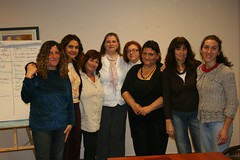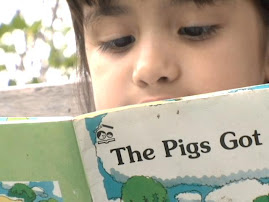I had the fantastic opportunity to be part of the founding of HIPPY Argentina. This program is the newest international site and has some unique aspects I’d like to share. The sponsoring organization is AMIA—the most important and largest Jewish community organization in Argentina, a country that is said to have the third largest Jewish population after Israel and the US. Their services are vast, ranging from social services, religious education training, elder care, employment services and cultural exchange among others. Their history unfortunately includes a tragically brutal bombing in 1994 in which 85 casualties died. My daily visit to AMIA had me approaching what is currently the most fortified building in Argentina, moreso even than the “Casa Rosada” where the Argentine president’s offices are, yet planted in the middle of a bustling textile and warehouse district. I had been pre-cleared (my name was given in advance to security) and given the go-ahead to walk through a door the thickness of a bank vault, then a metal detector and through another bank-vault like door. Once inside I walked up a flight of stairs and into busy maze of the Department of Social Services of AMIA. There, HIPPY falls within the area of social services provided to young Jewish families. Other programs include food distribution, counseling and childcare. HIPPY will be working within this structure to provide school readiness and parent education to low income Jews in various areas of greater Buenos Aires. This in itself makes it unique, as the first program outside of Israel to focus on services to Jewish families. I spent three days training the home visitors and coordinator and then another two days in meetings with the team of social workers and other leaders in the community. Before leaving I had the opportunity to share the HIPPY story with officials from the City of Buenos Aires in the hope that at a future date HIPPY services could be expanded into other communities. I was inordinately pleased to be given this opportunity to start HIPPY in Argentina because I’ve periodically visited since early childhood since my Aunt and later my grandmother moved to Buenos Aires. It was such a treat to be able to see family again and also to have a chance to share what I’ve learned in HIPPY with one of the communities of my heart.
For more pictures of the training, see our flickr site:
http://www.flickr.com/photos/hippyprogram/






